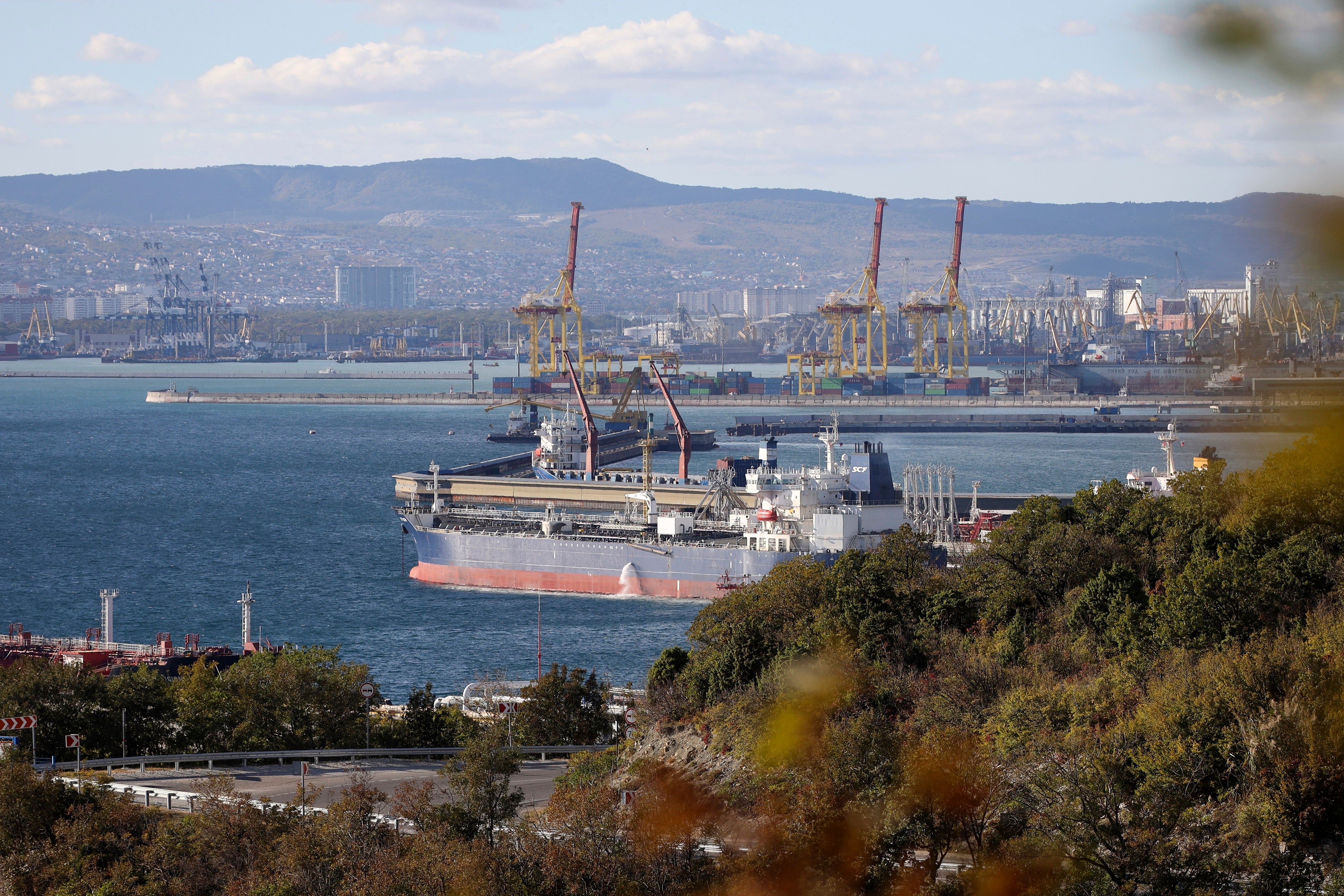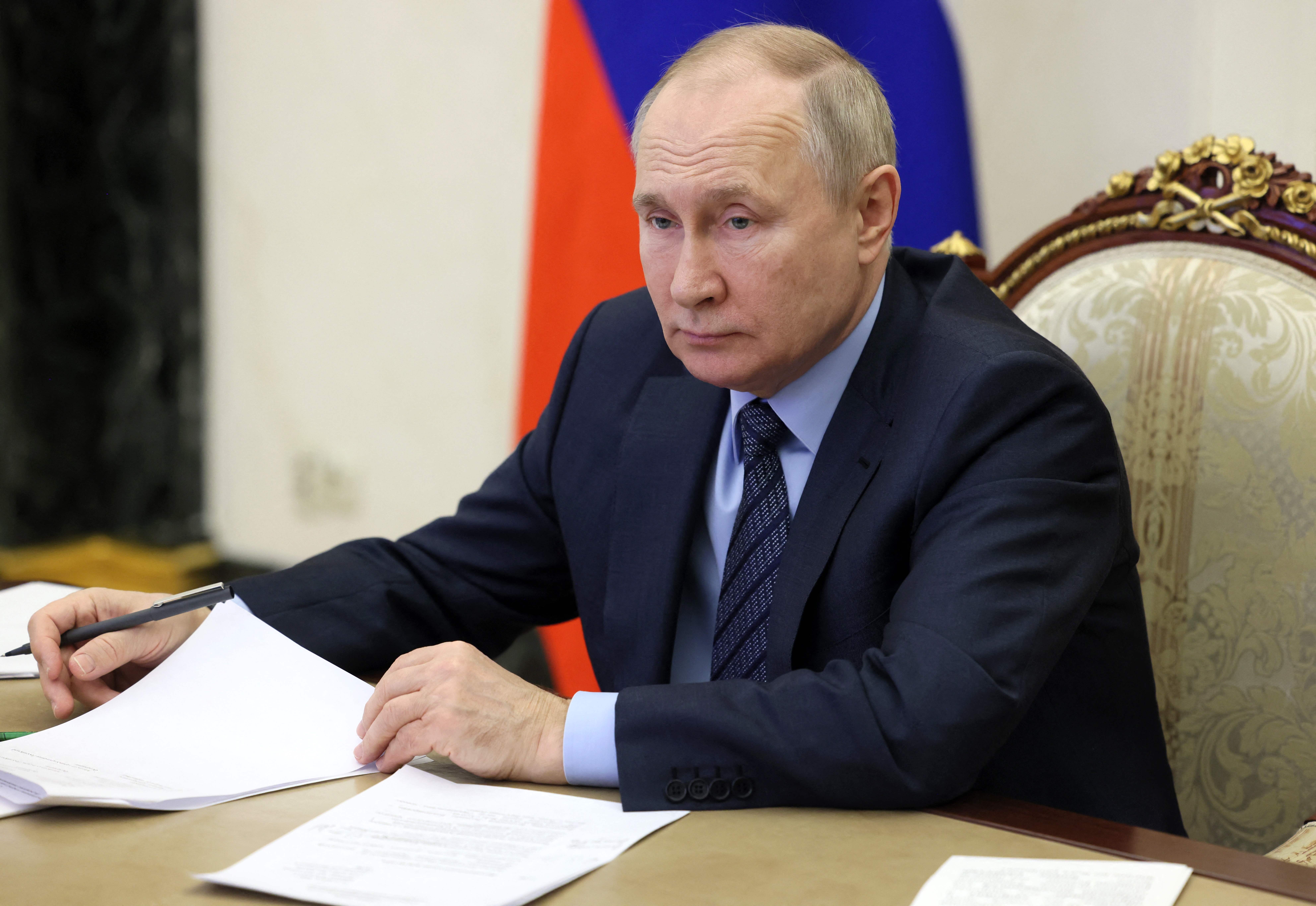Ukraine war: West’s Russian oil cap ‘weak,’ Zelensky says
The measure is aimed to reduce Russia’s income from selling oil
Your support helps us to tell the story
From reproductive rights to climate change to Big Tech, The Independent is on the ground when the story is developing. Whether it's investigating the financials of Elon Musk's pro-Trump PAC or producing our latest documentary, 'The A Word', which shines a light on the American women fighting for reproductive rights, we know how important it is to parse out the facts from the messaging.
At such a critical moment in US history, we need reporters on the ground. Your donation allows us to keep sending journalists to speak to both sides of the story.
The Independent is trusted by Americans across the entire political spectrum. And unlike many other quality news outlets, we choose not to lock Americans out of our reporting and analysis with paywalls. We believe quality journalism should be available to everyone, paid for by those who can afford it.
Your support makes all the difference.A price cap imposed on Russian oil by the G7 nations and Australia has been described as “weak” by Ukrainian president Volodymyr Zelensky.
The measure is aimed to reduce Russia’s income from selling oil, by capping the price at £48 ($60) a barrel. The EU is set to approve the cap after the G7 and Australia struck a deal on Friday.
Mr Zelensky said in a video address on Saturday night: “You wouldn’t call it a serious decision to set such a limit for Russian prices, which is quite comfortable for the budget of a terrorist state.
“It’s only a matter of time before stronger tools will have to be used anyway. It is a pity that this time will be lost.”
Andriy Yermak, head of Mr Zelensky’s administration, said earlier that the cap should be set at £24 ($30) “to destroy the enemy’s economy quicker”.
Mr Zelensky complained the world had showed weakness by setting the cap so high, which he said would swell Russia’s budget by $100bn a year.
“This money will ... go towards further destabilisation of precisely those countries that are now trying to avoid serious decisions,” he said.
Kremlin spokesperson Dmitry Peskov said Russia would not accept the price ceiling, while Russia’s permanent representative to international organisations in Vienna, Mikhail Ulyanov, warned that the European backers of the cap would come to rue their decision.

“From this year, Europe will live without Russian oil,” Mr Ulyanov tweeted.
“Moscow has already made it clear that it will not supply oil to those countries that support anti-market price caps. Wait, very soon the EU will accuse Russia of using oil as a weapon.”
It comes as Russian president Vladimir Putin told German chancellor Olaf Scholz in a phone call on Friday that the German and western line on Ukraine was “destructive” and urged Berlin to rethink its approach, the Kremlin said.

Mr Scholz urged Mr Putin to find a diplomatic solution to the war as soon as possible, “including a withdrawal of Russian troops”, the chancellor’s spokesperson said.
The price cap aims to put an economic squeeze on Russia and so damage its ability to finance a war that has killed an untold number of civilians and fighters, driven millions of Ukrainians from their homes and weighed on the world economy for more than nine months.
Additional reporting by agencies



Join our commenting forum
Join thought-provoking conversations, follow other Independent readers and see their replies
Comments